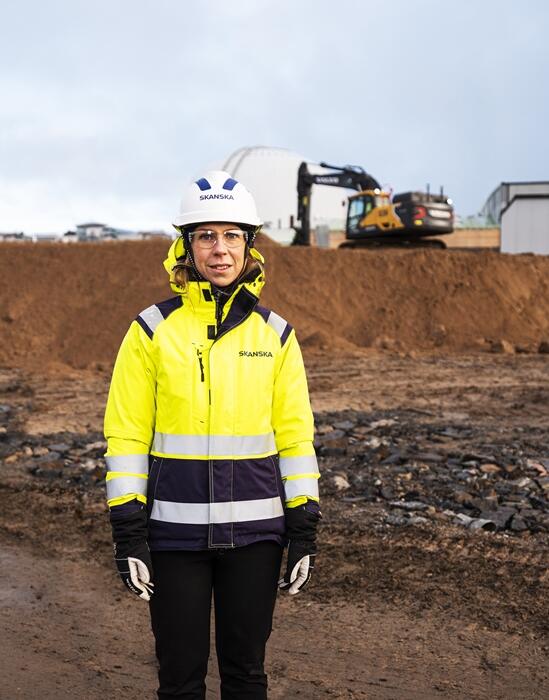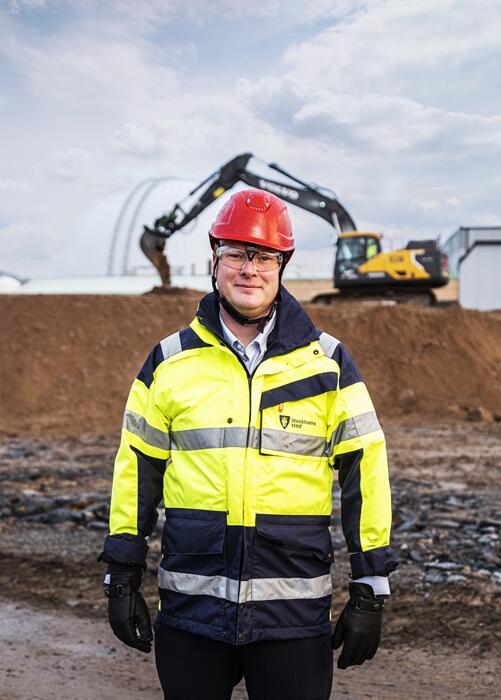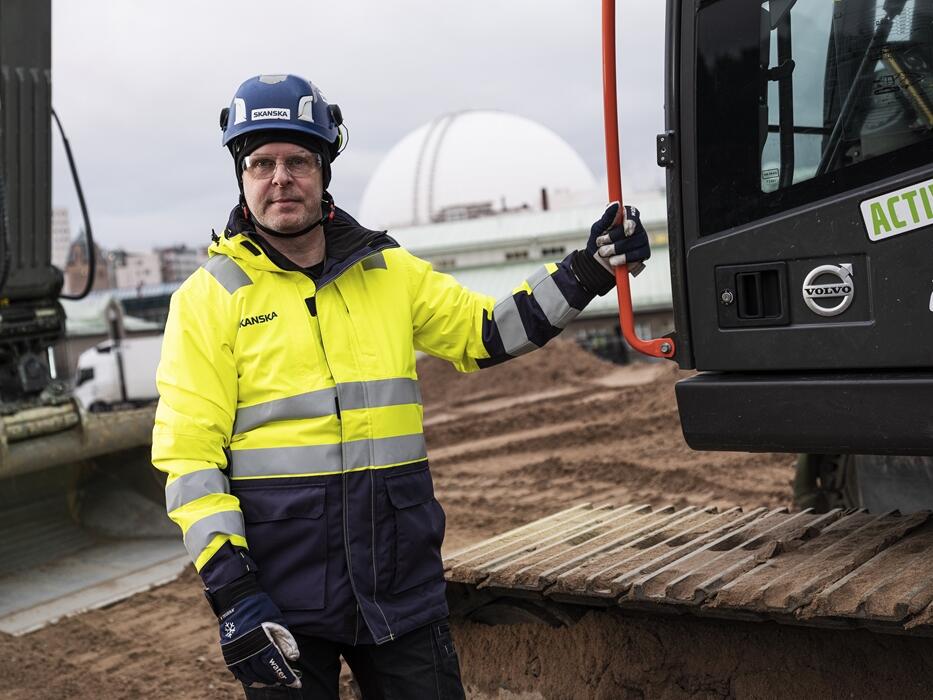More than 2,000 tons of CO2 will be saved in a partnership to transform a 100-year-old meat-packing district in the center of Stockholm, Sweden, setting a new benchmark for almost entirely fossil-free construction sites.

The 100-year-old ‘Slakthusområdet’ area of Stockholm city center in Sweden, also known as the meat-packing district, will become a testbed for innovation and emission-free construction equipment as work begins on its urban transformation. Construction is set to finish in 2033 and when open to the public, it will provide 3,000 new homes and 14,000 workplaces.
Sustainability has been built in from the project’s inception with a stipulation for fossil-free contracts, including transport to and from the construction site. With a particular requirement that at least one of the larger excavators working on site should be electric, there was only one partner for the job: Volvo CE and its industry-leading range of electric construction equipment.

When finished, the site will provide 3,000 homes and 14,000 workplaces
The new 23-ton EC230 Electric excavator, offered in selected markets, has already been proving its potential across a range of applications and is one of only a few mid-size electric machines commercially available. Early next year it will be put to work in Stockholm, together with a mobile peak-shaving power unit supplied by Volvo CE, to help excavate 75,000 tons of rock and 96,000 tons of soil in the first stages of the project, for an estimated 2,700 working hours.
 Fredrik Tjernström, responsible for Electromobility Solutions Sales at Volvo CE, says: “Partnership is how we can accelerate our journey towards emission-free jobsites. We have powerful and reliable solutions like our EC230 Electric providing all the benefits of electric equipment: zero exhaust emissions, near silence and more comfortable operation. But it is by collaborating with partners like Skanska and the City of Stockholm, who are aligned with our mission to build a better world, that we can really drive the transformation of our industry in a much more holistic way."
Fredrik Tjernström, responsible for Electromobility Solutions Sales at Volvo CE, says: “Partnership is how we can accelerate our journey towards emission-free jobsites. We have powerful and reliable solutions like our EC230 Electric providing all the benefits of electric equipment: zero exhaust emissions, near silence and more comfortable operation. But it is by collaborating with partners like Skanska and the City of Stockholm, who are aligned with our mission to build a better world, that we can really drive the transformation of our industry in a much more holistic way."
Lisa Kroon, project manager at Skanska, says: “It is Sweden's largest testbed in an urban environment for fossil-free contracting, where we will convert almost 35,000 machine hours to fossil-free. We want to challenge building standards and find new innovations, and we do this in collaboration with, among others, Volvo CE.”
Fredrik Tjernström

Lisa Kroon says: “We can challenge building standards and find new innovations through collaboration”
Insights from the EC230 Electric’s use will not only be instrumental in helping Volvo CE build the world we want to live in through our electric solutions – providing data on factors such as productivity, cost and scalability – but will also prove useful for other partners in their ongoing ambitions to reduce climate impact through their work.
Anders Österberg, deputy financial councillor and chairman of the exploitation committee in the City of Stockholm, says: “We want to drive the development of fossil-free contracts, and we can do that by setting tender requirements in our procurements. In the contract, where large amounts of rock and soil are to be excavated, one of the requirements is that at least 10% of the machine hours must be powered by electricity.”

Anders Österberg: “We want to drive the deployment of fossil-free contracts”
Fredrik adds: “The type of procurement that the City of Stockholm has required for fossil-free contracts will contribute to a breakthrough in the transition to electric machines. The EC230 Electric will contribute to 2,700 fossil-free hours in the project.”
Richard Sjöblom, Excavator Operator for Skanska, has had overwhelmingly positive feedback after operating the EC230 Electric, particularly in terms of the ease of charging and the performance of the machine when testing it across different applications. He says: “If I had the choice of an electric or diesel machine in this size class I would choose electric as there are so many advantages over a diesel machine. When the machine was delivered to site there were many sceptics who thought the machine didn’t have the capacity to last the whole day, but they have all been proved wrong!”

Operator Richard Sjöblom says he would now choose to drive electric over diesel
In addition to the EC230 Electric, it is required that all other machines be run on HVO (hydrogenated vegetable oil) – a biofuel which reduces greenhouse gas emissions by up to 90%.
November, 2022
Head of Brand, Marketing & Communication
Volvo Construction Equipment
Sales Region Europe / International
E-mail: anne.bast@volvo.com
Phone: 0735585906